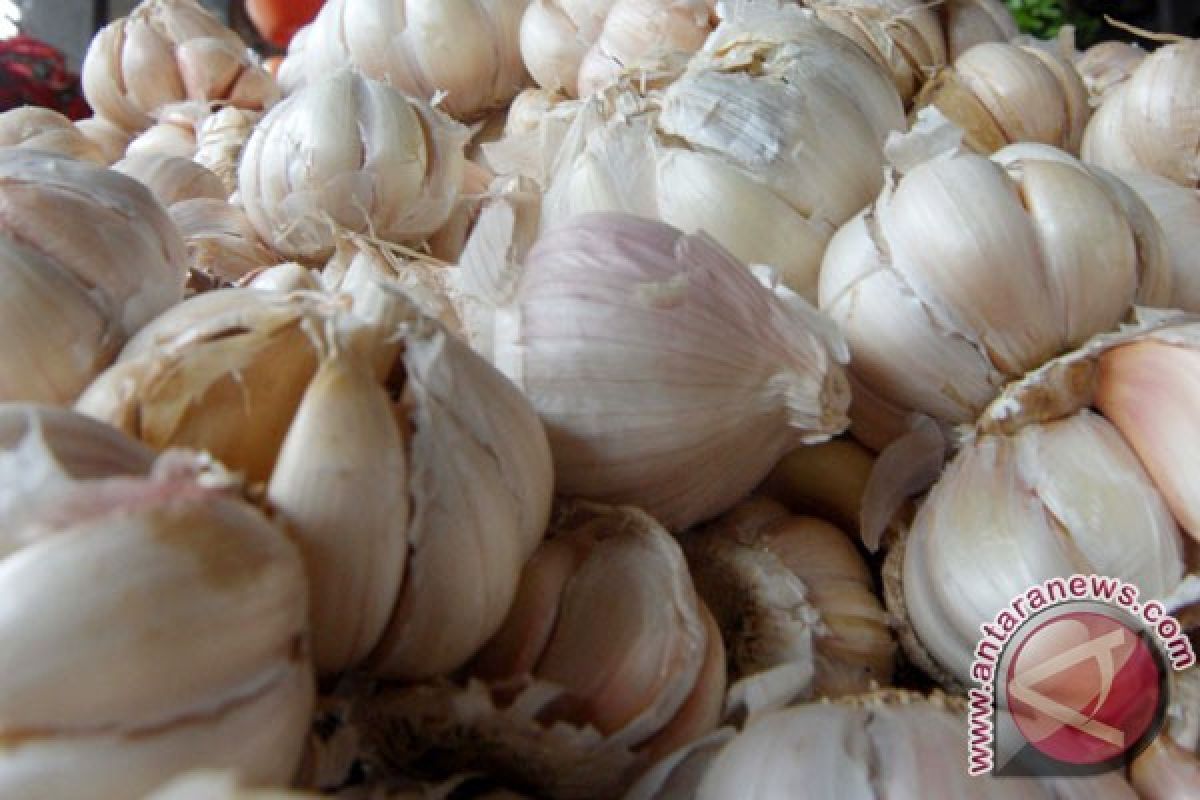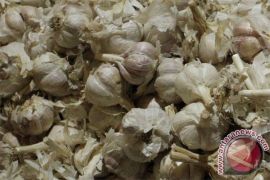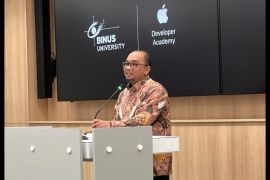"Therefore, I am going to make it sure whether there are still containers there."Gresik, East Java (ANTARA News) - Agriculture Minister Suswono denied suspicion that a cartel had been involved in an alleged hoarding of imported garlic at the container terminal of Tanjung Perak Seaport (TPS) in Surabaya, East Java, recently.
However, the minister said if there were still containers of garlic being held at the container terminal, it could be suspected that a cartel had been involved in it.
"If there were still containers of garlic held at the terminal, it could be suspected that there is a cartel`s role played by businessmen," the minister said here on Monday.
He said that if there were still containers being held at port`s terminals it meant there were unhealthy practices.
"Therefore, I am going to make it sure whether there are still containers there. I will visit directly the TPS in Surabaya," the minister said.
The suspicion of cartel`s practices came up to the surface after the customs officials found a change in the data of the containers` manifest.
There was a change in the number of containers in the manifest from 363 to 332 containers of garlic. The number was part of the 667 containers of horticultural products which were piled up at the container terminal.
A total of 29 containers have been released by the terminal after the completion of their documents on March 18, 2013.
It was followed by the release of 41 others after the completion of their documents.
But now about 200 containers have not yet been completed with the necessary documents.
Since early this year, the price of onions including garlic, has been increasing as domestic markets are facing scarce stocks.
Prompted by scarcity in supply and soaring price of garlic the government said it would boost the country`s production of the food commodity.
The government is set to expand the country`s garlic plantations by 2,000 hectares per year in a bid to meet growing domestic consumption and market demand, Minister Suswono said in West Java over the weekend.
"With the program in the next several years, the country would again have 20,000 hectares of garlic fields," Suswono said.
Indonesia once had 20,000 hectares of garlic fields, but most farmers stopped growing garlic after the market is allowed to be flooded with import, he said.
Farmers grew their lands with other more profitable crops, resulting in shrinking production of garlic from year to year, he said, giving no figure.
"Garlic growers in Indonesia are small farmers or landless farm workers. They could not be expected to compete with foreign growers who have large land and use high technology," he said.
He said the majority of farmers in the country have only around 0.3 hectares of farm lands each.
He said the government hopes to provide more land for garlic plantations in the next several years.
"The agriculture ministry has a target to continue to expand garlic fields from year to year," he said.
He said the government will provide high yield seed variety for the farmers.
He then calls for slapping high import duty on garlic to prevent imports from flooding the domestic market and to make local garlic more competitive on the domestic market.
"Imports should be made to make up for shortage in supply on the domestic market," he said, adding,"we hope local should remain dominant in the market.
He said farmers would grow crops if they hope to profit from it, therefore, incentives should be provided.
Indonesia was once self sufficient in garlic supply but now the market is dominated 90% by imports.
(Uu.A014/H-YH)
Editor: Priyambodo RH
Copyright © ANTARA 2013












